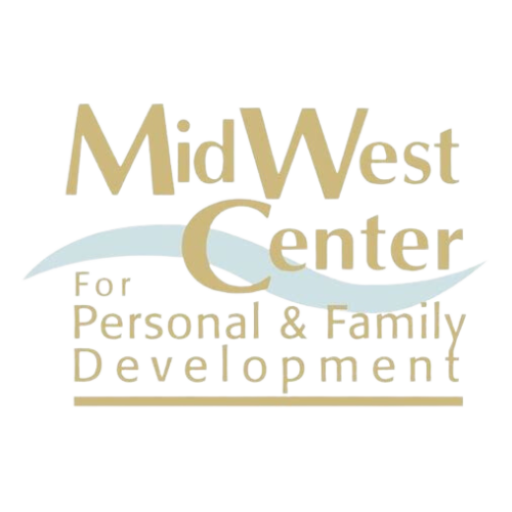Behavioral Disorders: Things to Know

What are behavioral disorders?
Behavioral disorders are mental health conditions involving disruptive, impulsive, or defiant behavior that interferes with daily life, relationships, and learning.
Types of behavioral disorders
The most common include ADHD, Oppositional Defiant Disorder (ODD), Conduct Disorder (CD), and Disruptive Mood Dysregulation Disorder (DMDD).
Causes of behavioral disorders
They result from genetic, neurological, psychological, and environmental factors—such as trauma, stress, or inconsistent parenting.
Behavioral vs. emotional disorders
Behavioral disorders involve outward actions like defiance or aggression; emotional disorders affect mood, such as anxiety or depression.
Early warning signs
Frequent tantrums, defiance, aggression, inattention, and difficulty following rules or routines may signal a behavioral disorder.
How are they diagnosed?
Diagnosis involves clinical interviews, standardized behavior checklists, and meeting criteria in the DSM-5.
Treatment options
Behavioral therapy, parent training, school interventions, and sometimes medication help manage symptoms and improve function.
Medication vs therapy
Many cases improve with therapy alone. Medication is often used for ADHD or severe symptoms but is not always required.
Impact on learning
These disorders can disrupt attention, focus, social behavior, and academic performance, often requiring school-based support.
Do adults have behavioral disorders?
Yes. If untreated in childhood, these disorders can persist into adulthood, affecting work, relationships, and mental health.
Frequently Asked Questions
- How do behavioral disorders affect relationships?
Behavioral disorders can lead to strained relationships due to difficulties with communication, impulsivity, aggression, or emotional dysregulation, which often create frustration or misunderstanding among family, friends, or colleagues. - What is the difference between ADHD and other behavioral disorders?
ADHD is characterized by inattention, impulsivity, and hyperactivity, whereas other behavioral disorders, such as ODD or Conduct Disorder, involve more persistent defiance, rule-breaking, or antisocial behavior. - Can behavioral disorders be hereditary?
Yes, research shows that genetics can play a role in the development of behavioral disorders. Family history of mental health conditions, including ADHD or mood disorders, increases the likelihood of behavioral disorders in children. - What are the long-term effects of untreated behavioral disorders?
Untreated behavioral disorders can lead to academic failure, social isolation, legal issues, substance abuse, and mental health problems, affecting a person’s long-term success in school, work, and relationships. - How do behavioral disorders impact work performance?
Behavioral disorders may cause difficulties in concentration, following instructions, or managing stress, which can impact productivity, teamwork, and job stability, leading to poor performance or even job loss. - Can behavioral disorders be prevented in children?
While not always preventable, early intervention, consistent parenting, positive reinforcement, and a structured environment can reduce the likelihood of developing serious behavioral issues. - What are the warning signs of a child with behavioral problems?
Warning signs include frequent temper tantrums, defiance, aggression, inattention, trouble following rules, and social issues with peers or authority figures. - How can teachers help students with behavioral disorders?
Teachers can offer structured routines, provide clear expectations, use positive reinforcement, and collaborate with parents and counselors to create a supportive learning environment for students with behavioral disorders. - Can behavioral disorders be cured?
There is no “cure” for most behavioral disorders, but with appropriate therapy and support, individuals can learn to manage symptoms and lead productive lives. - Are behavioral disorders linked to substance abuse?
Yes, individuals with behavioral disorders, especially conduct disorders or ADHD, are at higher risk for substance abuse, often due to impulsivity, poor coping strategies, or associating with negative peer groups. - What is the best treatment for oppositional defiant disorder?
Treatment for ODD typically includes parenting strategies, behavioral therapy, and family therapy, focusing on improving communication, setting clear boundaries, and reinforcing positive behavior. - How can parents manage children with behavioral disorders at home?
Parents can manage behavioral disorders by setting consistent rules, providing positive reinforcement, maintaining routines, staying calm during conflicts, and seeking professional guidance when needed. - What are the most common co-occurring conditions with behavioral disorders?
Behavioral disorders often co-occur with conditions like ADHD, anxiety, depression, learning disabilities, and substance use disorders. - Is there a relationship between behavioral disorders and anxiety?
Yes, many individuals with behavioral disorders, particularly ADHD or ODD, may also experience anxiety disorders. These co-occurring conditions can amplify stress and disrupt daily functioning. - Can behavioral disorders cause academic failure?
Yes, behavioral disorders can significantly impact a child’s ability to focus, complete tasks, and follow rules, which can lead to poor academic performance and potential school failure. - How does therapy help in treating behavioral disorders?
Therapy, especially Cognitive Behavioral Therapy (CBT) and Parent-Child Interaction Therapy (PCIT), helps individuals address negative thought patterns, learn coping strategies, and improve communication skills. - Can behavioral disorders develop in adulthood?
While behavioral disorders are typically diagnosed in childhood, they can persist into adulthood if not addressed. Disorders like Antisocial Personality Disorder (ASPD) or Borderline Personality Disorder (BPD) can develop later. - What role does diet play in behavioral disorders?
Diet can impact mood and behavior, with certain foods (such as high sugar, processed foods, or caffeine) exacerbating symptoms of hyperactivity, impulsivity, or mood swings, while a balanced diet may help reduce symptoms. - How do environmental factors influence behavioral disorders?
Environmental factors, such as exposure to trauma, family instability, or a lack of support systems, can trigger or worsen behavioral disorders, particularly when combined with genetic predispositions. - What is the prognosis for children with behavioral disorders?
With early intervention, consistent therapy, and support, children with behavioral disorders can improve over time. Some may outgrow certain behaviors, while others may require long-term management to function effectively in adulthood.
When to Seek Help
If you notice concerning behavioral patterns in yourself or a loved one that interfere with daily life, seeking professional help is essential. Early intervention can improve outcomes and support better coping strategies
